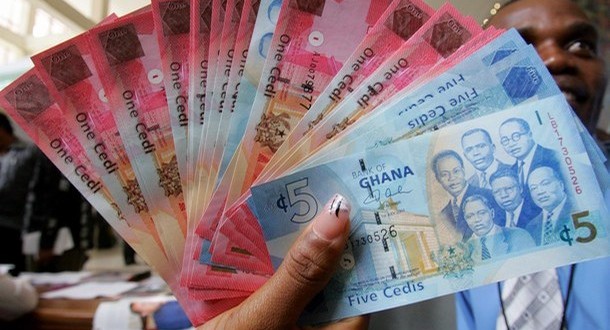 Business owners can now heave a sigh of relief as the cedi over the past month seems to have stabilized against the dollar and other major foreign currencies.
Business owners can now heave a sigh of relief as the cedi over the past month seems to have stabilized against the dollar and other major foreign currencies.
A forex operator who spoke to JoyNews said they now buy the dollar at GHC3.00 and sell at GHC3.25; the British Pound on the other hand bought at GHC4.8 and sells at GHC5.2.
The cedi has depreciated over the years primarily because the demand for foreign currencies by individuals, institutions and government to undertake foreign-currency denominated transactions has been far greater than what has been generated through economic activity, foreign remittances, grants and loans.
The situation further worsened due to the actions of currency speculators who have sought to profit from the recurring macroeconomic misalignments, as well as market participants and ordinary individuals hedging against inflation.
This year alone the cedi has depreciated against the US dollar by about 40 percent.
But the forex operator said the cedi has been appreciating against these major foreign currencies every day since August and this has made it difficult for him and other business operators to sell currencies they buy.
He said the initial rush that came with the unavailability of foreign currencies has reduced dramatically.
“People are not rushing like before; every day we are buying the dollar but we cannot sell”.
A Currency Analyst, Sam Ampah, said businesses can celebrate the cedi’s appreciation against the major foreign currencies.
“We can jubilate a little bit because we are getting some relief, businesses will smile at this moment that the cedi has been able to gain some value or appreciate against the dollar”.
He said traders will not be the only ones benefiting from the gains, but individuals and businesses as well should be able to feel the impact of the stabilization.
Mr Ampah anticipates the reduction in the prices of goods and services but said this could have been more evident if prices of petroleum products had been reduced by government.
He, however, was unsure if customers can demand the reduction in the prices of goods on the market due to the unavailability of a price control regime in the country.
“It is unfortunate we do not have the price control regime now but the point is that if we had that regime then maybe we could have had government coming in to enforce the reductions of prices on the market. But inflation rates should be able to tell us if there is a reduction in prices or not”.
He said if traders operate in a very competitive environment and are sensitive enough then competition should be able to force a reduction in the prices of goods and services on the market.
He expressed confidence in the International Monetary Fund (IMF) bailout which is expected to begin from next year saying it should leave some level of stability in the currency.



